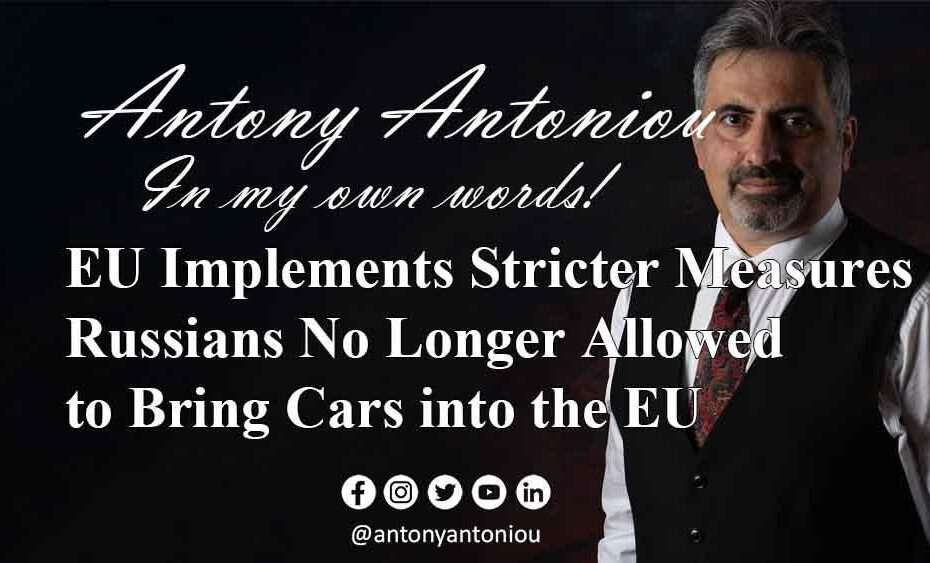EU Implements Stricter Measures – Russians No Longer Allowed to Bring Cars into the EU
In a recent development that sent shockwaves across Europe, Russian nationals have been dealt a major blow as they can no longer bring their cars into the European Union. The news came to light on September 11th after the European Commission clarified an update to the EU sanctions policy, which now mandates the confiscation of vehicles with Russian license plates.
The European Commission’s update, outlined in a document titled “Frequently asked questions on import, purchase, and transfer of listed goods” dated September 8, 2023, addressed a crucial question: Can Russian nationals temporarily bring personal goods and vehicles into the EU under the sanctions regime imposed on Moscow? The answer was an unequivocal “no.”
This new restriction applies irrespective of whether these vehicles are intended for private or commercial use. It also encompasses all vehicles bearing Russian license plates, regardless of the duration of their stay in the EU and the customs procedures they undergo.
This recent update goes beyond a prior ban on Russians bringing what the EU categorizes as “luxury” cars into the EU, which was part of the 11th package of sanctions. Luxury cars, according to EU criteria, are those with a value exceeding €50,000 or with an engine capacity of over 1,900 cm³. It also includes all electric and hybrid cars, regardless of their other specifications.
One aspect left unclear by the new sanctions policy update is the status of cars owned by Russian nationals that already exist within EU territory. Many EU countries have witnessed an influx of cars with Russian number plates, notably Bulgaria, where an estimated 300,000 Russian nationals have invested in real estate and continue to drive their Russian-registered vehicles.
Amidst the confusion, Commission spokesperson Daniel Ferrie emphasized that member states are expected to rigorously enforce the ban on car imports, even if the vehicle only crosses the border for tourism or short-term purposes. The statement left open the question of whether exceptions might be considered for Russian nationals who permanently reside in a member state or hold refugee or humanitarian status.
This development has far-reaching implications for Russian nationals in the EU and raises questions about the broader impact of the EU’s sanctions policy on various sectors and industries. As this situation continues to evolve, it remains crucial to monitor any further updates and clarifications from the European Commission and the member states regarding the status of Russian-owned vehicles on EU soil.

